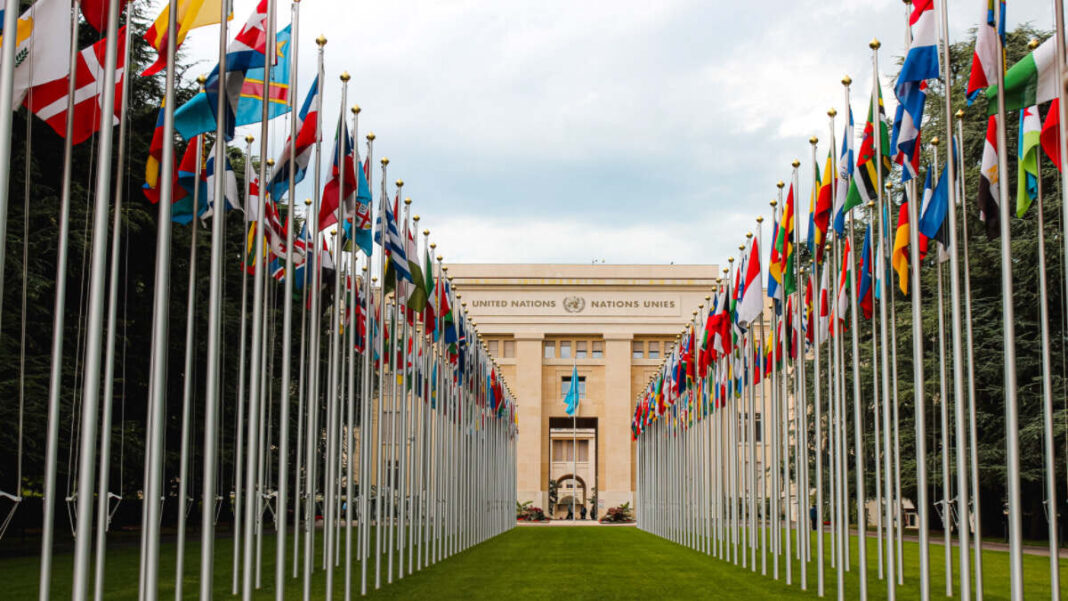NETHERLANDS: FCCI is set to hold the International Conference on UN reforms for the changing world with particular emphasis on the United Nations Security Council. It is known as “Foundation for Critical Choices in India”.
The Foundation for Critical Choices for India (FCCI) acts as a body that aims to add studies and programs on various issues of strategic importance to India.
FCCI mainly acts as a think tank for launching and carrying out research projects and initiatives on topics of strategic importance to India in the social, political, and economic spheres by enlisting the aid of non-resident Indians (NRIs) and people of Indian descent (PIOs).
International Conference program
International Conference will be held at Kasteel de Wittenburg, Landgoed de Wittenburg 1,2244 BV, Wassenaar, The Netherlands, on May 3, 2023.

The program will be divided in two parts. First part will commenced with meet and greet session. Later, Dr. Yamini J. Singh, Secretary General FCCI will provide specific instructions. Jasbir Singh, President FCCI and FIDE will address the opening and welcome session. Ram Lakhina, President Emeritus, FCCI will introduce the theme representation of the conference.
Dr. Pramod Agrawal, VP programs, FCCI will discuss FCCI’s vision. After that, speeches will be given by Representative from Africa, Asia including middle east, Australia, Europe, Latin America and North America.
Part two will begin with panel discussion which will include panellists from each continent, who are UN members. Harjit Sandhu, Former Coordinator UN Security Council will be the panellist in the session. Drs. Badri Madan, former President FCCI, will deliver the vote of thanks, concluding the conference.
UN’s inception and FCCI’s role in International Conference
Established after World War II and following the ineffectiveness of the League of Nations, the United Nations acts as an intergovernmental body whose stated objectives are to promote world peace and security. It has 77 years of history since its inception and has 193 member states.
The UN plans to address the problems faced by humanity in the twenty-first century in the modern world. It mainly includes:
- Respecting international law
- Defending human rights
- Providing humanitarian help
- Fostering sustainable development
- Preserving international peace and security
Modern times are facing multiple issues that pose a threat to global peace and cause negative impact on the UN. The ongoing war between Russia and Ukraine can be considered an example of the factors affecting global peace.
It mainly leads to the following issues faced by the UN:
- Power imbalance
- Non-equitable representation of member states
- Lack of democratic principles in decision-making
- Dependency of the UN for funds on its member states
There are some brand-new global issues that need coordinated responses, particularly those that pertain to peace and security. Hence, fostering reconciliation among the member states is essential for enhancing the relevance and effectiveness of these institutions at both the UN and UNSC levels.
In order to empower the UN through its “One World” approach to collective governance, the FCCI performed a thorough study over the course of numerous brainstorming meetings and, through a reliable literature survey, came up with some new recommendations. Reforms to the UNSC are given particular attention.
FCCI has developed a number of unique, inclusive recommendations to improve UNSC representation equity and instill democratic values in decision-making. The foundation has initiated a unique system that has also been suggested for the UN’s financial independence for efficient global governance.
This international conference’s major goal includes multiple aspects, which are as follows:
- Share research
- Exchange ideas
- Open discussions with the UN
The discussion with the United Nations will focus on the urgent need for reforms with representatives from various member states, veto-holding countries, G-4, G-20, C-10 nations, the EU, and other members.
This international meeting is the first significant step in advancing UN changes without taking a biased stance and beginning the difficult process of forging consensus among the UN member nations.
The program will be quite participatory and feature speakers and panelists from various backgrounds, including UN affairs specialists, diplomats, business leaders, and international law experts.
Also Read: Cannes’ Marché du Film Names Spain as Its Country of Honour



